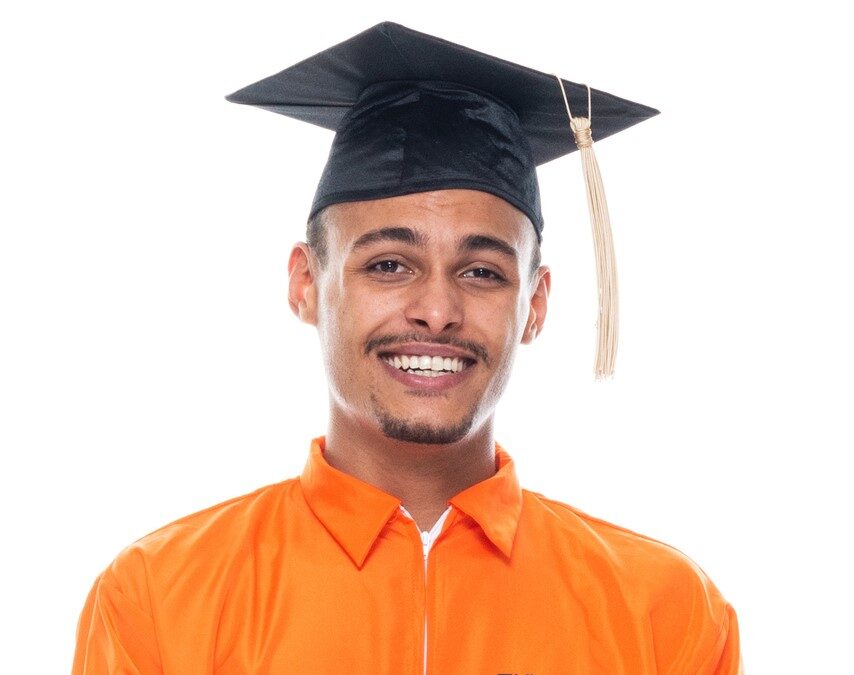President Barack Obama became the first sitting president to visit a federal prison when he spoke with staff and incarcerated men at the El Reno Federal Correctional Institution in Oklahoma on July 16, 2015. He used the visit to share his ideas about crime, justice, and second chances. Two weeks later, the federal Department of Education launched a program to allow partnerships between prisons and postsecondary institutions to offer certificates, associate degrees, and bachelor’s degrees to incarcerated students in subjects ranging from business to the social sciences.
On June 24, 2016, the federal Department of Education announced the 67 two- and four-year colleges and universities that were granted an opportunity to educate approximately 12,000 men and women as part of the Obama administration’s $30 million Second Chance Pell Experimental Sites Initiative (SCPESI). The department announced a new cohort of 67 two- and four-year colleges and universities on April 21, 2020.
What is the goal for SCPESI? According to information in the Federal Register, this experiment “is intended to test whether participation in high-quality educational opportunities increases after access to financial aid for incarcerated adults is expanded.”
How is SCPESI doing since its launch in 2016? Pretty well as it happens. Using survey data collected in December 2020 from the administrators of 59 colleges that were part of the original 2016 group, the Vera Institute of Justice identified in an April 2021 report a total of 22,117 unique—or “unduplicated”—students enrolled in a postsecondary education program during the first four years of SCPESI. Researchers also found that more than 7,000 students have earned either a bachelor’s degree, associate degree, or career and technical certificate or diploma.
Since I joined the Advanced Studies in Culture Foundation in 2020, I have partnered with education and criminal justice reform stakeholders to identify creative methods to deliver teaching and learning opportunities to incarcerated people. For example, I moderated a seminar to highlight the important role HBCUs play in criminal justice reform as part of a Black History Month celebration in February 2021.
I also hosted a seminar to highlight the vital role nonprofit and faith-based institutions play in criminal justice reform as part of a Second Chance Month celebration in April 2021.
In addition to hosting events about education for incarcerated adults, I write about it.
In March 2020, I published a report titled “A Story to Tell: The Importance of Education During Incarceration As Told by 22 Men and Women Who Know Firsthand.” Nearly half of the authors used a Pell Grant to pay for vocational and postsecondary courses during incarceration—including two students who used a Pell Grant to pay for courses prior to the ban in 1994.
In June 2020, I was pleased to release a new report on this topic entitled “Observations About the Second Chance Pell Experimental Sites Initiative.” It is a collection of responses from eight individuals with experience working with a state agency, college, university, prison, or a combination thereof, with membership in the original 2016 SCPESI cohort.
I produced both reports, which were funded by a grant from the Chan Zuckerberg Initiative, to provide K-12 educators and principals, elected officials, agency and prison leaders, scholars, and current and formerly incarcerated students with firsthand accounts of what works, what does not work, and what we can do differently to provide an education to people during incarceration—be it for self-improvement, to reduce recidivism, for employment opportunities, or a combination thereof.
The sum findings of these reports, seminars, and writings indicate that there is a strong need for programs like SCPESI; and, that there are positive outcomes of such programs for the individuals involved and society at large.
Gerard Robinson served as Commissioner of Education for the State of Florida and Secretary of Education for the Commonwealth of Virginia. Other leadership roles have included Executive Director of the Center for Advancing Opportunity and Director and President of the Black Alliance for Educational Options. Robinson also was a Resident Fellow at the American Enterprise Institute. He is coeditor of Education for Liberation: The Politics of Promise and Reform Inside and Beyond America’s Prisons (2019) and Education Savings Accounts: The New Frontier in School Choice (2017). In addition, he cohosts The Learning Curve: National Education Podcast. Robinson has been published or quoted in AEI Ideas, Gallup News, Newsweek, The Hedgehog Review, the Hill, the New York Times, the Washington Examiner, the Washington Post, the Wall Street Journal, and US News & World Report. He earned a B.A, from Howard University and an Ed.M. from Harvard University, as well as an A.A. from El Camino Community College.

